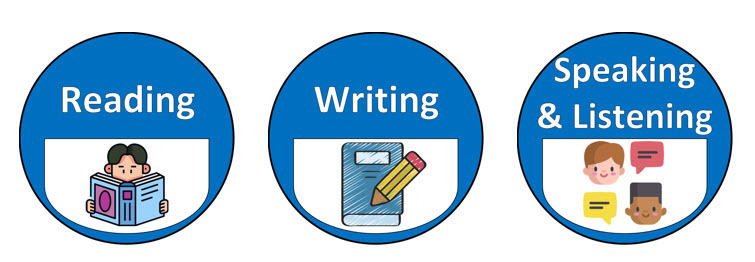- Home
- Children
- Subject Information
English - Mr Dack
Intent:

English Curriculum S-Plan (Ks1 to Year 6).pdf
Progression in VIPERS (2025).pdf
Supporting Reading at Home (VIPERS Questions For Home Reading).pdf
At Oldfield Park Junior School we believe that a quality English Curriculum should develop children’s love of reading, writing and discussion. One of our priorities is helping children read and develop their all-important comprehension skills. We recognise the importance of nurturing a culture where children take pride in their writing, can write clearly and accurately and adapt their language and style for a range of contexts. We want to inspire children to be confident in the art of speaking and listening and be able to communicate in order to further their learning.
We believe that children need to develop a secure knowledge-base in English, which follows a clear pathway of progression as they advance through the Curriculum. We believe that a secure basis in English skills is crucial to a high quality education and will give our children the tools they need to participate fully as a member of society.
Implementation:
These aims are embedded across our English lessons and the wider curriculum. We have a rigorous and well organised English Curriculum and Writing Framework, that provides many purposeful opportunities for reading, writing and discussion. We use a wide variety of quality texts and resources to motivate and inspire our children. Teachers also ensure that cross-curricular links with concurrent thematic work are woven into the programme of study.
The National Curriculum for English aims to ensure that all pupils:
-
read easily, fluently and with good understanding
-
develop the habit of reading widely and often, for both pleasure and information
-
acquire a wide vocabulary, an understanding of grammar and knowledge of linguistic conventions for reading, writing and spoken language
-
appreciate our rich and varied literary heritage
-
write clearly, accurately and coherently, adapting their language and style in and for a range of contexts, purposes and audiences
-
use discussion in order to learn; they should be able to elaborate and explain clearly their understanding and ideas
-
are competent in the art of speaking and listening, making formal presentations, demonstrating to others and participating in debate.
At Oldfield Park Junior School, we identify children who need support and provide intervention in the most effective and efficient way that we can. We run intervention reading groups and are fortunate to have parents and governors who come in regularly to hear children read. Most children on the SEND register have reading and comprehension as one of their targets. Teachers plan and teach English lessons which are differentiated to the particular needs of each child. We help each child maximise their potential by providing help and support where necessary whilst striving to make children independent workers once we have helped to equip them with the confidence, tools and strategies that they need.
Impact:
The impact on our children is clear: progress, sustained learning and transferable skills. With the implementation of our Writing Framework being well established and taught thoroughly in both key stages, children are becoming more confident writers and by the time they are in upper Key Stage 2, most genres of writing are familiar to them and the teaching can focus on creativity, writer’s craft, sustained writing and manipulation of grammar and punctuation skills.
We hope that as children move on from Oldfield Park Junior School to further their education and learning, that their creativity and passion for English and their high aspirations travel with them and continue to grow and develop as they do.
OPJS English Policy:
Below you will find a copy of our school's English Policy.
Age-Related Expectations (EXS) in Writing (Year 3 to 6)












